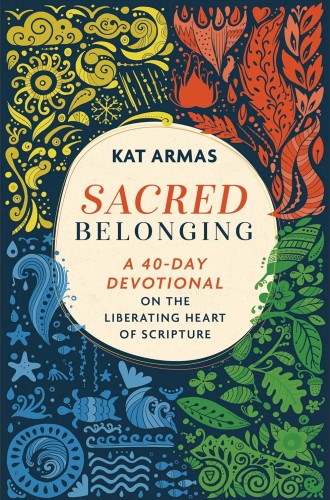Kat Armas’s devotional does not exist for your personal growth
Instead, the Cuban-American writer aims to turn her readers’ gaze outward.

Sacred Belonging
A 40-Day Devotional on the Liberating Heart of Scripture
“I haven’t read a devotional in years,” Kat Armas confesses in the first line of her new devotional book. I rarely finish a devotional, although I buy and start them regularly. Still, I devoured Sacred Belonging in a couple of days instead of taking the recommended 40.
Armas, who is Cuban-American, writes from a decolonizing perspective: “When the Bible’s content, which deals with every aspect of life—political, economic, religious, and historical—was taken out of its original context, the result yielded a depoliticized Bible and, as a consequence, religion in the West was reduced to personal faith and salvation.” This way of reading was aligned with Western imperialism, and so “the writings of subjected people resisting empire became the very texts used to justify it.” The title comes from Armas’s sense of belonging to a web larger than ourselves—a sense that she longs to cultivate in opposition to the pressure she feels from other devotionals to focus on herself and ways that she needs to change.
Armas, who has two seminary degrees, takes issue with the way “dominion over” (Gen. 1:26) has traditionally been interpreted. Noting that the word over suggests domination, she cites biblical scholar Ellen Davis’s argument that the preposition would be better translated as “among” or “with respect to.” This discussion takes place in my favorite section of the book, which focuses on the topic of creation. Throughout the section, Armas invites us to notice the creatures around us and listen to them—not merely as vessels God speaks through, but as subjects with their own agency and wisdom. The eight devotionals in this section clearly articulate Armas’s thesis that we are part of a sacred web of belonging.




